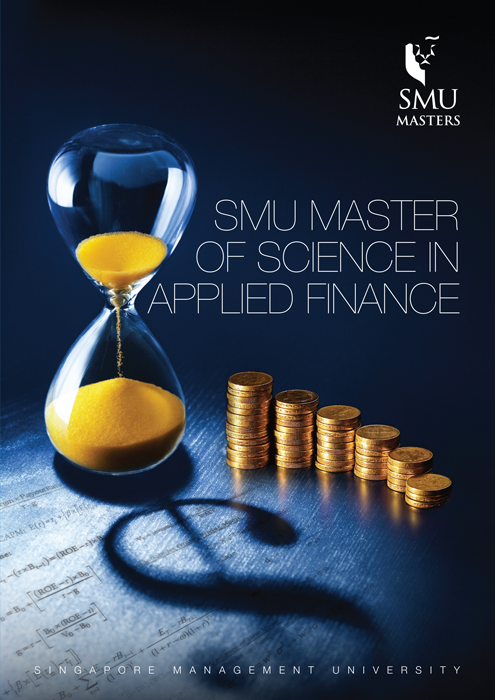
Save the earth, while making some cash: what's not to like about green investments, the latest financial trend to catch the fancy of retail investors? With Environmental, Social, and Governance (ESG) investment funds, green bonds and even sustainably-linked loans, it sounds like there's a green finance product for any kind of consumer.
The rise of the sustainable investing trend is timely, as several major global initiatives, such as the launch of UN Principles for Responsible Investment (PRI), UN Sustainable Development Goals (SDGs), Paris Agreement (under the UN Framework Convention on Climate Change), and the upcoming UN Climate Change Conference (COP26), have played a big role in mobilising governments, corporations, and investors around the world to commit to sustainable investing, notes Lee Kong Chian School of Business (LKCSB) Associate Professor of Finance Hao Liang.
“It has also raised public awareness of grand challenges such as climate change, inequality, and public healthcare concerns that the whole society faces,” adds Hao Liang, whose research interests include corporate social responsibility and sustainable finance.
“The rise in evident, extreme weather events have led businesses and investors to realise their assets and investments are subject to these heightened physical risks. The Covid-19 pandemic has also worsened social issues such as income disparity and discrimination at work, which can increase risks in the economic and political climate.”
Moreover, the recent wave of campaigns by major asset managers such as BlackRock, Vanguard, State Street (also known as Wall Street’s “Big Three”) and Norges Bank of Investment Management on promoting carbon neutrality, board diversity and long-term value has also fuelled stakeholder interests in sustainable investing.
The Big Three, collectively, constitutes the largest shareholder in 88 per cent of S&P 500 (an index of the 500 largest publicly traded US) firms, and therefore wields substantial power over the actions of major corporations. For example, since the campaigns by the Big Three on board gender diversity were launched in 2017-2018, many gender diversity indices were introduced for mainstream investors to tap into the theme. The impact of the campaigns was also significant, with firms shown to have added 2.5 times as many female directors to their corporate boards in 2019 compared to 2016.
However, an op-ed by a former BlackRock exec Tariq Fancy claims that many sustainable funds are largely unregulated and that the financial industry is "greenwashing the public". According to Robeco Asset Management, notes Hao Liang, greenwashing is “the practice of trying to make people believe that a company is doing more to adopt sustainability than it is, often for public relations reasons.”
Mr Fancy, who is the former chief investment officer of Sustainable Investing at BlackRock, charged that ESG funds sometimes include companies such as petroleum majors and other large polluters like “fast fashion” manufacturers in order to boost returns. For example, certain ESG funds would integrate oil and gas producers that have pledged to strengthen their sustainability strategies into their portfolios.
Hao Liang, who was recently on the same plenary with Mr Fancy to discuss ESG and Sustainable Finance, adds: “In investment, it’s about asset managers claiming that they are actively creating positive environmental or social impacts without actually doing it, that is, not ‘walking the talk’.”
We speak with Hao Liang, who currently holds the Lee Kong Chian Fellowship and was also a BNP Paribas Fellow and DBS Sustainability Fellow, to learn more about what greenwashing in impact investing entails, and how education, collaboration and research are essential for regulating and bolstering this fast-rising industry.
Matter of trust
Sustainable and responsible investments (SRIs) have become increasingly mainstream in recent years. For example, according to Global Sustainable Investment Alliance, the total amount of global SRI assets reached $35.3 trillion in 2020, and almost all major asset owners and asset managers are launching sustainable funds.
Despite the huge market size and rapid market growth, however, Hao Liang asserts that there is limited knowledge of whether SRIs drive positive environmental and social changes, especially with the rise of increasing concerns over greenwashing in these sustainable funds and other ESG investment products.
For example, billionaire hedge fund manager Christopher Hohn of The Children’s Investment Fund Foundation has accused asset managers purporting to be sustainable investors of being “full of greenwash,” while Chamath Palihapitiya of Social Capital observes that the ESG movement has been used by some as a “marketing ploy and a way for companies to get free money.”
Driven by concerns that greenwashing could undermine green finance, regulators in the US, Europe, Japan, and Singapore are considering new rules to tackle greenwashing. Last year, the European Commission launched the Taxonomy for Sustainable Activities (“EU Taxonomy”), a classification system of economic activities that can be considered environmentally sustainable, to combat greenwashing by providing companies, investors and policymakers with appropriate definitions. It also unveiled the Sustainable Finance Disclosure Regulation (SFDR) this year, which imposes mandatory ESG disclosure obligations for asset managers and other financial markets.
To date, these so-called “greenwash rules” have impacted about US$2 trillion of investment funds.
“The efforts by the European Union show that regulatory frameworks and measures do play an important role in protecting investors from greenwashing, a valuable experience for the other parts of the world,” says Hao Liang.
“In addition, private sectors such as accounting/auditing firms and ESG rating agencies also play an important role in providing more accurate information to the market on the ‘greenness’ of investment products.”
Refining regulatory frameworks
While numerous ESG ratings and metrics are available for mainly publicly listed companies, critics have highlighted a lack of transparency and inaccuracies in reflecting stakeholder welfare. For example, there is usually a significant incomparability between different metrics of impact, such as carbon dioxide emissions and human rights, observes Hao Liang.
In addition, ratings are subject to biases and inconsistencies such as the tendency for larger companies to have higher ESG ratings because they could afford to allocate more resources to collating their sustainability reports; or there may be instances of rating agencies changing their ratings methodology in an ad hoc manner. Moreover, the multiple ESG ratings awarded to a single entity often do not correlate, as the same company may receive a stellar rating from one research firm and a poor result from another.
“Finding the sweet spot in determining the definition for eligibility and the standard for measurement will be challenging,” admits Hao Liang.
“All these challenges limit the reliability of defining and measuring green investments. Therefore, we need more transparent and consistent frameworks and methodologies for measuring ESG impact, not only for public equity but for all kinds of investment.”
How to invest responsibly, according to experts
For a start, retail investors looking to invest in sustainable and responsible funds should research various ESG ratings of the funds’ underlying stocks, and avoid reliance on ratings from a single source. They should also be wary of stocks with significant variances in ESG ratings from multiple sources – “that’s a sign that rating agencies do not agree with each other on the true ESG performance of the company”, warns Hao Liang.
Investors should also pay attention to granular information on ESG such as how the companies perform in the use of renewable energy, employee welfare and quality of products.
“Most sustainable funds neither deliver superior financial returns nor promote environmental and societal sustainability, but claim they are ‘sustainable’ in a bid to attract investments,” says Hao Liang.
“Academic studies also tend to support the view that investing in sustainability does not necessarily deliver superior financial returns, because sustainable companies are already highly valued (and it’s a commonsense that investing in overvalued stocks tend to deliver lower returns in the future), and screening out ‘sin stocks’ tend to constrain portfolio optimisation.”
Ultimately, greenwashing can affect the integrity of investments made in what investors otherwise believed to be sustainably operated companies or sustainable funds. It has long-term, negative effects on companies, as false claims about the sustainability of products can result in investors being unable to properly allocate capital towards their goals.
As such, to create real impact in tackling ESG challenges around the globe, practitioners need to come together to address the triple bottom-line, rather than allow greenwashing to persist and less scrupulous companies co-opt sustainability as a clever sales ploy.
Speak to our Admissions Advisors
Lee Kong Chian School of Business
Postgraduate Admissions
Singapore Management University
Lee Kong Chian School of Business
Graduate Programmes Office, Level 4
50 Stamford Road, Singapore 178899
Tel: +65 6828 0882
Join us at the upcoming events
Ofukacho, 1−1 ヨドバシ梅田タワ
Osaka, Kita Ward, 〒530-0011, Japan
Kyobashi, 1 Chome−3−5 三井ガーデンホテル 1F
Chuo City, Tokyo, 〒104-0031, Japan
Lee Kong Chian School of Business
Level 4, Postgraduate Office
50 Stamford Road
Singapore 178899
We will be sending the zoom link 2 hours before the start of the event.
You are required to download the Zoom app & sign
